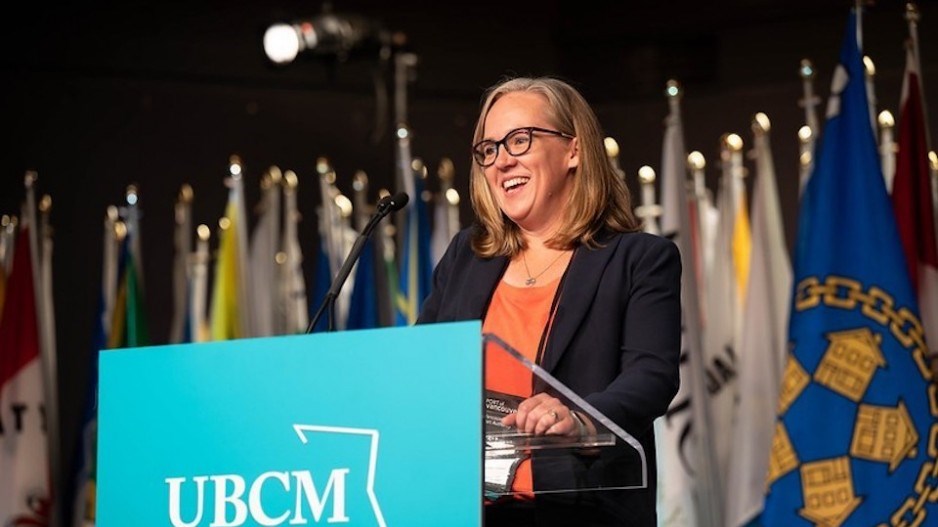This week's Union of BC Municipalities (UBCM) conference promises a lot of debate on ongoing hot-button issues such as homelessness, emergency services and the opioid crisis as well as climate change and forest fires, the outgoing president says.
Whistler Coun. Jen Ford will hand over her duties as president to Coquitlam Coun. Trish Mandewo when the latter is sworn in as the new president Sept. 22 — unless someone is nominated from the floor during the conference necessitating a vote.
The conference runs Sept. 18-22 in Vancouver. Glacier Media will be providing extensive coverage.
Ford said she's seen multiple new mayors and councils as a result of the 2022 municipal elections across the province. And, with Premier David Eby taking office, Ford said the UBCM has been kept busy.
“His first 100 days have been extremely busy and we’ve been at the table on behalf of British Columbia communities,” Ford said. “We’ve made some pretty big impacts.”
Ford cited the $1-billion Growing Communities Fund, new environmental management initiatives and work on housing as work that’s has seen positive results during her term in office.
“We’re sort of in a perfect storm of overlapping crises with housing and the climate crisis,” Ford said.
For her, the most gratifying part of her work in the past 12 months has been collaborating with other local leaders and visiting their communities.
“Just seeing how different communities approach the work they do,” she said.
Looking ahead to the UBCM’s coming year, Ford said housing affordability and supply would remain top of mind. She also expects the issue of emergency services funding to once again be of concern.
“We feel emergency response for health issues is an issue,” she said. “When resources aren’t available and ambulance drivers aren’t available . . . the issue falls to municipalities’ fire departments and that is a municipal issue.”
She said not responding to emergencies is not an option so municipalities end up paying.
“How do we recover those funds?” she asked. “It’s a challenging one. It’s a downloading.”
She told Glacier Media there could be a special resolution at the conference dealing with consumption of illicit substances in public spaces.
The province announced Sept. 14 that drug use and possession would no longer be allowed within 15 metres of playgrounds, waterparks and skate parks, after Health Canada expanded exemptions to B.C.’s decriminalization pilot law.
The change came in response to concerns from mayors and police chiefs.
Prior to that announcement, anyone could possess and use up to 2.5 grams of cocaine, heroin, crack, MDMA and fentanyl in public, except on school grounds, at child-care facilities and in airports — as part of a three-year pilot project in B.C. that started Jan. 31 to help curb rising overdose deaths.
The new children’s areas are added to this list of places where police may still enforce the Controlled Drugs and Substances Act.




